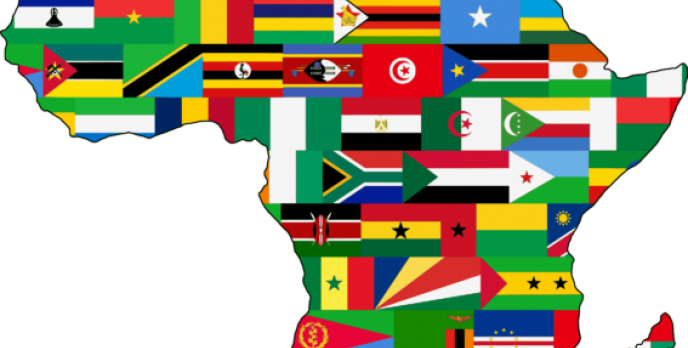Opinion: Africa needs ambitious leadership — now more than ever

Authors: Uhuru Kenyatta; Donald Kaberuka
We are currently fighting against multiple diseases in Africa. In this, leadership is everything. But there are no leaders without followers.
We would be wise to remember this in the current crisis. As African leaders, we must bring our populations with us in the fight for better health.
At the onset of COVID-19, there was a concern that African health systems would not be able to cope with the disease. It has indeed been challenging. However, early, timely decisions and public support have minimized the damage — while being difficult economically and socially.
African countries, such as South Africa and Senegal, have responded reasonably effectively to the COVID-19 crisis — introducing containment measures to “flatten the curve,” as well as a wide range of policy responses, such as direct income support and tax breaks to cushion households and businesses from the economic effects of the pandemic.
The cost, both socially and economically, has been high, but lives have been saved. We have achieved this by combining scarce domestic resources and external support, while maintaining existing commitments to end AIDS, tuberculosis, and malaria.
Preexisting challenges
Even well before COVID-19, mobilizing domestic resources needed for sustainable health systems was a challenge for African leaders. The pandemic has tested the capacity of our countries and continent to balance saving lives with protecting livelihoods. COVID-19 threatens the significant progress that has been made in African health care over the last 20 years.
However, transformative leadership is now more urgent than ever before, as we can expect resources to be spread more thinly at this time of greater need. At the same time, with the world under pressure, we are likely to see declining international support. The U.K., for example, has reduced its foreign aid budget from 0.7% to 0.5% of gross national income. Other donor countries are unlikely to increase their aid commitments as they spend on recovery packages at home.
As African leaders, we are committed to leading by example and holding ourselves accountable to our populations. This means delivering on pledges to eliminate AIDS, TB, and malaria by 2030.
Pulling together
The “Africa Leadership Meeting: Investing in Health” in February 2019 heralded a new era of African-owned health responses, putting domestic investments for health at the center of what we do.
The Global Fund to Fight AIDS, Tuberculosis and Malaria mobilized $14.02 billion that year during its sixth replenishment, which has now been allocated to countries to support them in the fight against AIDS, TB, and malaria for the 2020-2022 cycle. Meanwhile, 24 African countries pledged over $75 million — nearly double the pledges made by 11 African countries during the fifth replenishment cycle.
And in the face of COVID-19, the Global Fund quickly made available $1 billion to support countries as they respond to the pandemic and adapt their HIV, TB, and malaria programs, reinforcing already overstretched health systems while working with partners to mobilize an additional $5 billion in additional support.
Despite the difficult programming environment during the pandemic, countries in Africa have already modified their plans to ensure that essential services for these three diseases continue to be delivered. For example, many countries have modified their anti-malaria mosquito net campaigns to comply with physical distancing measures, and health workers have been provided with personal protective equipment as they deliver prevention and treatment services.
We must trumpet these successes so that our people know the progress we are making as we pull together through this challenging time.
No room for complacency
African countries face both unique and common challenges, and it is vital that our nations reinforce peer learning. Health systems across the continent vary, calling for context-specific responses to COVID-19. Across the board, we have to fight the pandemic as we confront the realities of an overstretched, weak health system. We also need to take this opportunity to deepen conversations with our global development partners about reshaping perspectives and ensuring national ownership of priorities.
Transformative leadership is now more urgent than ever before, as we can expect resources to be spread more thinly at this time of greater need.
We as leaders in Africa should enhance the use of data for evidence-informed decision-making. There are some innovative initiatives in this area, including the African Leaders Malaria Alliance’s Scorecard for Accountability and Action, that are disease- and region-specific and help leaders improve accountability, monitoring, and response to health systems gaps based on periodic reports with recommended actions. ALMA is also pioneering digitization of malaria- and health-related data across the continent.
Mortality rates for COVID-19 remain low across Africa — but there is no room for complacency. Our health systems must be made fit for purpose to sustain gains across a whole range of diseases while being ever prepared for new pandemics in the future. This must happen by strengthening and ingraining preparedness for the health workforce, service delivery, information access and delivery, and access to medical products, vaccines, technologies, and financing.
Transformative leadership is a holistic balancing act between country-specific needs and context-specific solutions. African leaders in health have an enormous role to play in the collective quest for global health.
But we must also remember that leaders are nothing on their own. We must bring African people with us by building awareness, fostering partnerships, calling for accountability, and taking personal responsibility to fight new and existing diseases. To do so is true leadership. Together, we will emerge stronger.

